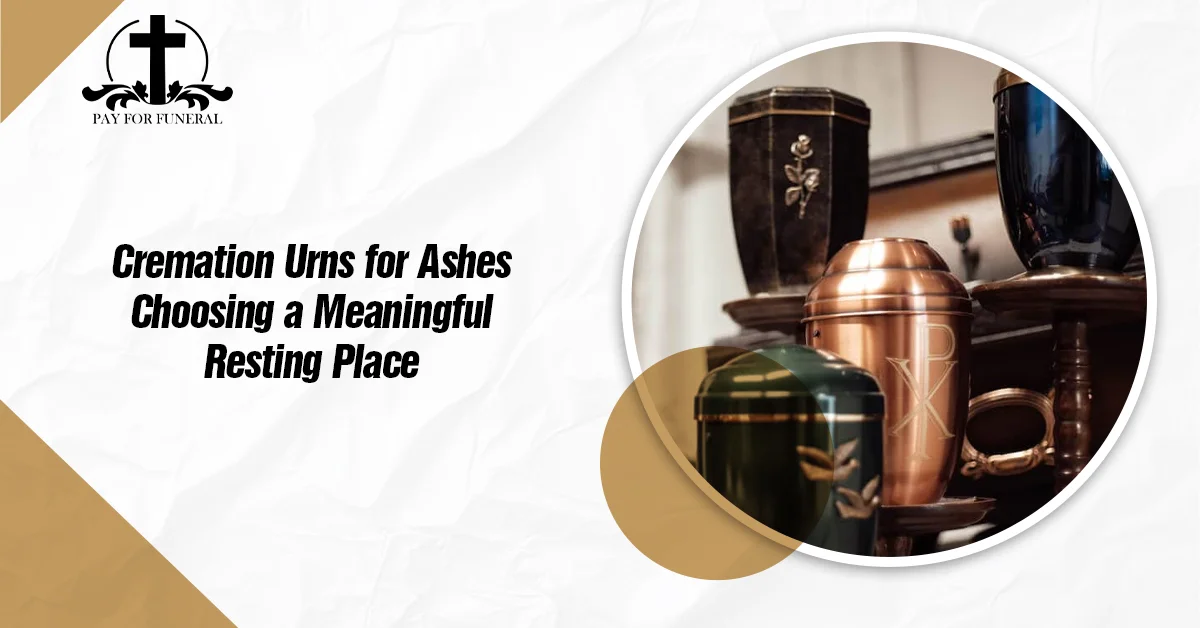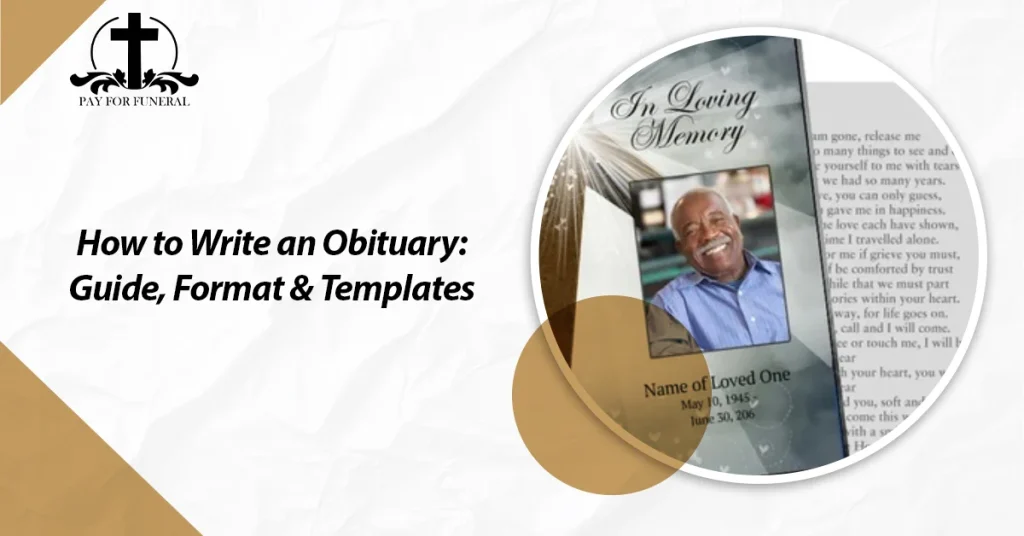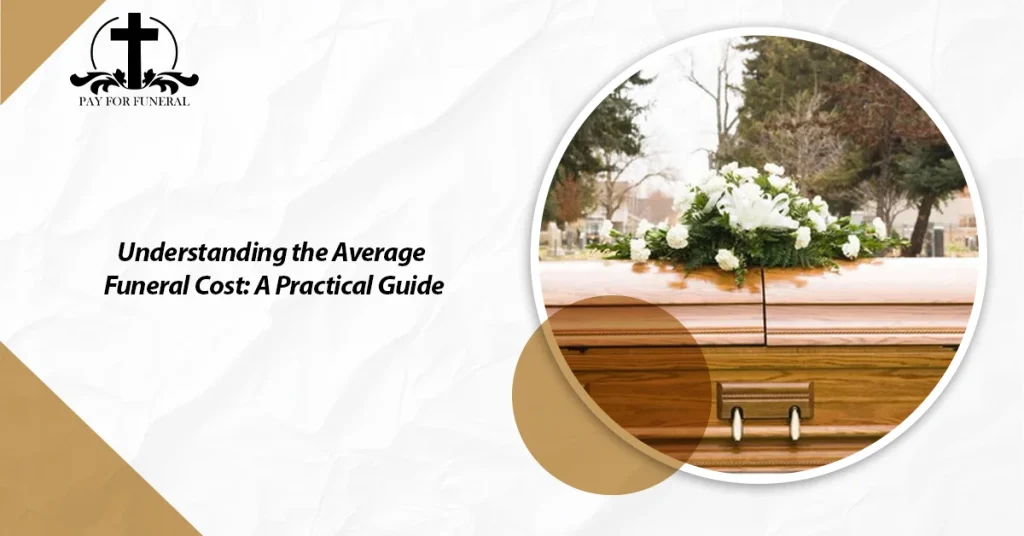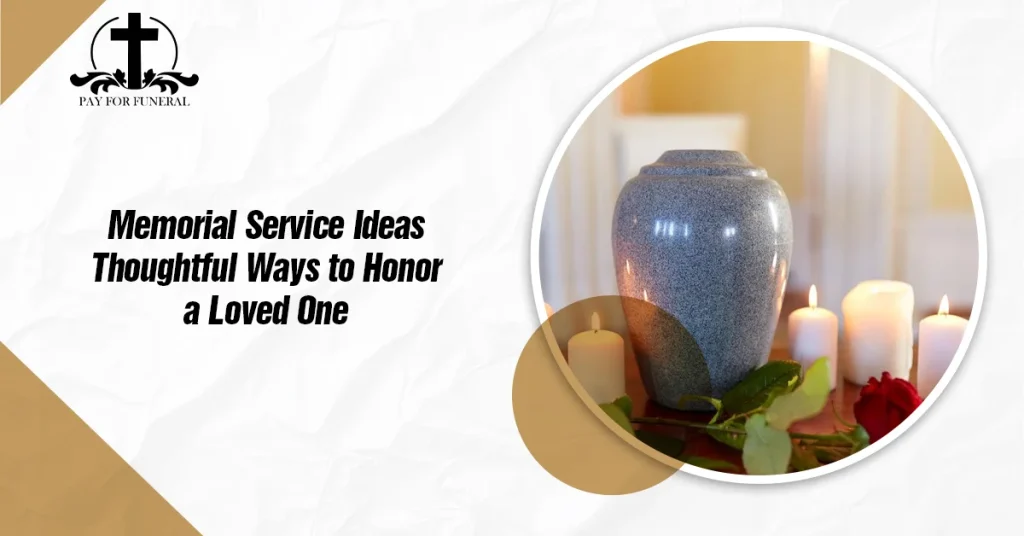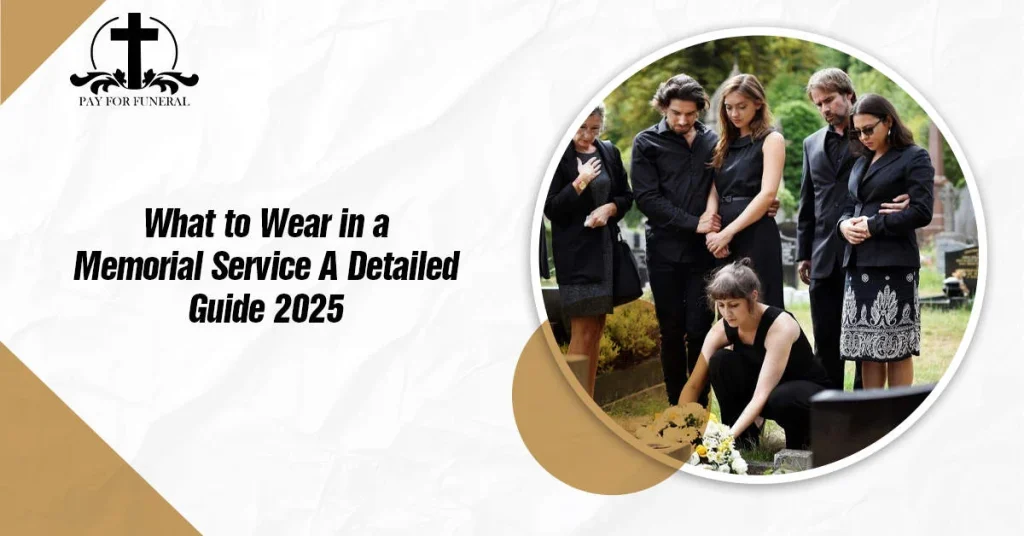Introduction
Cremation urns hold deep emotional and practical meaning for families who have lost a loved one. More than just containers, they are a lasting way to honor and remember someone special. Whether displayed at home, buried, or kept in a special place, cremation urns for ashes help keep memories close.
Choosing the right urn can feel overwhelming during an already difficult time. This guide is here to help. We’ll explain the different types of urns, how much they cost, what materials are available, and how you can personalize them to reflect your loved one’s life. We’ll also answer common questions so you can make the best decision with confidence and care.
Cremation Urns for Human Ashes: What You Need to Know
Cremation urns are specially designed containers used to hold the ashes of a loved one after cremation. They are an important part of the memorial process, offering a respectful and meaningful way to honor and remember someone who has passed. Often called memorial urns or funeral urns, these vessels come in many styles, sizes, and materials to suit different preferences and needs.
Urn Sizes and Capacities
Cremation urns are available in various sizes, depending on who they are meant for:
Get Free Quotes
Customized Options Await
- Adult Urns: These are full-sized urns designed to hold the ashes of an average adult, usually about 180–220 cubic inches in capacity.
- Child Urns: These smaller urns are made for the ashes of a child, typically holding less than 100 cubic inches.
- Pet Urns: Specially made to hold the ashes of a beloved pet, these come in sizes to suit different types of animals.
- Keepsake Urns: These are tiny urns that hold a small portion of ashes. They are often used when family members each want a personal memorial.
Personal Cremation Urns for Ashes
Personal cremation urns are designed for individual use and can be customized with names, dates, photos, or special messages. Whether displayed at home, placed in a niche, or buried, these urns serve as a beautiful reminder of a life well lived.
Whether you’re looking for a traditional funeral urn or a unique keepsake to cherish, understanding your options will help you choose something that truly honors your loved one.
Small Cremation Urns for Human Ashes: When Are They Used?
Small cremation urns for human ashes are used in special situations where only a small amount of ashes needs to be kept. Though they are smaller in size, their emotional value is just as great. These urns are meaningful ways to hold onto a personal memory of a loved one.
When Are Small Urns Used?
Here are some common scenarios where small urns are the right choice:
- Dividing Ashes Among Family Members: After cremation, the ashes can be shared among close family or friends. Small memorial urns allow each person to keep a portion as a personal tribute.
- Keepsake or Travel Urns: Some people prefer to keep a small amount of ashes in a keepsake urn, which is easy to display or carry while traveling. These urns are ideal for remembrance on the go or during special ceremonies in different locations.
- Infant or Child Ashes: In cases of losing an infant or young child, smaller urns provide the right size while still offering space for meaningful personalization. These urns are often made with gentle colors and soft designs.
Material and Design Options
Small cremation urns come in many materials, just like larger funeral urns:
- Metal (like brass or stainless steel)
- Ceramic or Porcelain
- Wood
- Glass or Crystal
- Biodegradable materials for eco-friendly needs
Designs range from simple and classic to deeply personal featuring engraved names, religious symbols, hearts, or even nature-inspired themes.
Whether you’re honoring a child, sharing ashes among loved ones, or simply keeping a small part of someone close, small cremation urns offer comfort and remembrance in a compact and beautiful form.
Companion Urns for Cremation Ashes: A Symbol of Eternal Togetherness
Companion urns are specially designed containers that hold the ashes of two individuals, often a married couple, partners, or very close family members. By offering dual capacity in a single piece, these urns symbolize the bond that continues even after life’s journey ends.
Why Choose a Companion Urn?
- Dual Capacity: Built to accommodate two sets of ashes side by side, or in separate chambers, companion urns keep loved ones together in one lasting memorial.
- Ideal for Couples or Close Family: Perfect for spouses, life partners, siblings, or parent-and-child pairs who wish to remain united.
- Emotional and Symbolic Value: They represent lifelong commitment, shared memories, and the promise of eternal togetherness offering comfort to those who visit.
Design Options
- Side-by-Side Urns
- Two matching sides within one unit
- Clean, balanced look, as if two urns are joined
- Double-Chamber Urns
- Single-shell design with two inner compartments
- Unified exterior shape, reflecting inseparable bonds
Materials and Personalization
Companion urns come in a range of materials such as marble, wood, metal, or biodegradable stone. Many can be engraved with names, dates, quotes, or meaningful symbols (like intertwined rings or hearts) to reflect the couple’s unique story.
Choosing a companion urn allows families to honor two lives in one elegant tribute, reminding us that love and connection endure beyond the physical world.
Specialty Urns: Unique and Purposeful Choices
Specialty urns are unique cremation urns designed to reflect a person’s identity, beliefs, passions, or service. These urns go beyond traditional styles and offer a meaningful way to honor a loved one’s life story in a more personalized and expressive way.
Examples of Specialty Urns
- Military or Veteran Urns: Designed to honor those who served in the armed forces. These may include patriotic symbols like flags, eagles, or military emblems and are often made in colors such as navy blue or bronze.
- Religious-Themed Urns: These urns feature symbols of faith such as crosses, angels, praying hands, or scripture to reflect spiritual beliefs and provide comfort to religious families.
- Artistic or Custom-Shaped Urns: Some urns are crafted like sculptures, hearts, butterflies, or even hobbies like musical instruments or sports items. These creative designs offer a truly one-of-a-kind tribute.
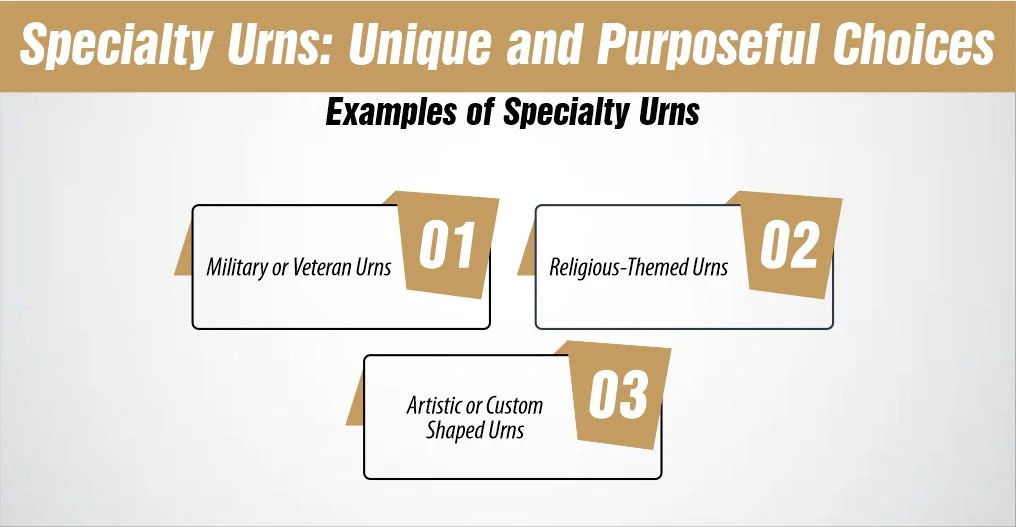
Personalization Options
Specialty urns allow for a high level of customization, such as:
- Engraving names, dates, or quotes
- Adding photos or custom artwork
- Choosing favorite colors or meaningful symbols
- Selecting materials like ceramic, wood, or hand-blown glass
By choosing a specialty urn, families can create a personal and purposeful memorial that honors not just the memory, but the personality and passions of a loved one.
Eco-Friendly Urns for Ashes: A Sustainable Farewell
As more people look for ways to reduce their environmental impact, eco-friendly urns for ashes are becoming a popular choice. These urns offer a respectful and sustainable way to say goodbye, while also honoring a loved one’s commitment to nature.
Types of Eco-Friendly Urns
- Biodegradable Urns: Made from natural materials like paper, salt, sand, or clay. These urns are designed to break down gently in the environment, making them ideal for water or soil burial ceremonies.
- Water Burial Urns: Float briefly and then dissolve naturally in lakes, rivers, or the sea offering a peaceful return to nature.
- Tree Pod Urns: These urns combine ashes with a seed or young tree, allowing a new life to grow in memory of a loved one. They’re a beautiful symbol of renewal and lasting tribute.
Environmental Benefits and Certifications
Eco-friendly urns are often certified by environmental organizations for their safe, non-toxic materials. They support green burial practices, reduce carbon footprints, and are often handmade using sustainable methods.
Choosing an eco-friendly urn is more than a personal decision, it’s a legacy of love for both the earth and future generations.
Decorative Urns: Honoring Loved Ones with Style
Decorative urns serve as both a memorial and a piece of art, designed to be displayed in the home with dignity and beauty. These urns combine craftsmanship with emotional value, helping families keep their loved one close in a comforting and elegant way.
Craftsmanship and Aesthetic Value
Decorative urns are often handcrafted, featuring intricate designs, carvings, or painted details. They are meant to blend in with home decor while still standing out as meaningful tributes. Whether minimalist or ornate, each piece tells a story.
Common Materials
- Ceramic: Classic and timeless, often hand-glazed or painted
- Marble: Elegant and heavy, symbolizing strength and permanence
- Wood: Warm and natural, available in cherry, oak, walnut, and more
- Glass: Delicate and artistic, sometimes incorporating color swirls or patterns
- Metal: Durable and sleek, often finished in bronze, pewter, or gold tones
Display Considerations and Cultural Influences
Many families place decorative urns in living rooms, bedrooms, or private memorial spaces. Cultural traditions may influence urn placement or decoration such as placing flowers, candles, or photos nearby. Some cultures view urns as sacred items that deserve a special, peaceful space.
Decorative urns offer a lasting and stylish tribute, blending memory with meaningful design to honor a loved one with grace.
Average Cost by Types of Urns: Budgeting for a Memorial
When planning a memorial, it’s important to understand the costs involved in choosing the right urn. Prices can vary widely depending on the type, material, design, and where you purchase it. This guide will help you budget by breaking down the average cost of different cremation urns for ashes.
Cost Ranges by Urn Type
- Basic Urns ($50–$150)
Simple in design and made from materials like metal or plastic, these urns are affordable yet respectful. Often used for temporary storage or basic memorials. - Mid-Range Decorative Urns ($150–$400)
These urns offer more style and better materials—like ceramic, wood, or marble. They often feature elegant finishes and are made for display at home or in a niche. - Custom or Artistic Urns ($400+)
Handcrafted, sculpted, or personalized urns made by artists can go well beyond $400. These one-of-a-kind pieces reflect the loved one’s personality, hobbies, or beliefs. - Eco-Friendly Urns ($70–$300)
Made from biodegradable materials, these urns are ideal for green burials. The cost depends on design, type (water or soil), and whether it’s a tree pod or paper urn. - Companion Urns ($300–$600)
Designed to hold ashes of two people, these larger urns are often made from high-quality wood, stone, or metal and may include custom engraving or double chambers.
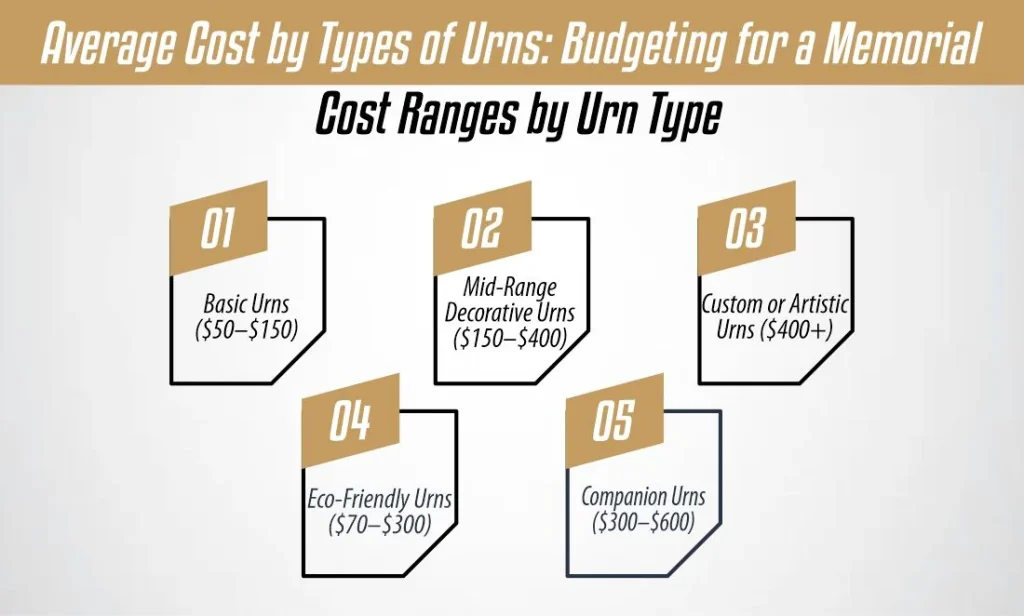
What Affects the Price?
Several factors influence how much an urn will cost:
- Material: Urns made from wood, marble, or hand-blown glass typically cost more than basic metal or plastic.
- Brand: Well-known or designer brands may charge more for craftsmanship, reputation, and warranties.
- Personalization: Custom engraving, photo inserts, or special finishes add to the final cost.
- Where You Buy It: Urns purchased online often have more variety and better pricing. Buying from a funeral home may be more convenient but can also be more expensive.
Understanding these cost ranges and factors can help you choose a cremation urn that fits your needs, honors your loved one, and stays within your budget.
Funeral Home Urn Policy: What to Expect
When working with a funeral home, it’s important to understand their policies around urns to avoid surprises during a difficult time. Here’s a brief overview of what you can usually expect.
Can You Bring Your Own Urn?
Most funeral homes allow you to bring your own urn, giving you the freedom to choose one that fits your preferences. However, it’s a good idea to check with them first to ensure the urn meets their size and material requirements.
Size and Type Requirements
Funeral homes often require urns to fit specific size guidelines to safely hold the ashes and for ease of handling during the cremation process. Some may only accept urns made from certain materials (like metal or wood) to comply with their equipment.
Legal and Regulatory Notes
Policies can vary depending on the region or country due to local laws and regulations about handling ashes. Some places may have rules about how ashes are stored, transported, or scattered, so it’s important to be informed.
Ask Questions in Advance
To avoid delays or confusion, it’s best to ask the funeral home about their urn policies early in the process. Knowing what is allowed will help you plan ahead and choose the right urn with confidence.
Cremation Containers vs. Urns: What’s the Difference?
It’s common to hear the terms cremation container and urn used interchangeably, but they serve different purposes in the cremation process.
Cremation Container
A cremation container is a temporary, functional box that holds the body during cremation. It is usually made of materials like cardboard, wood, or composite and designed to be safe and respectful during the process. This container is not meant for long-term display or storage.
Urn
An urn is a permanent container designed to hold the ashes after cremation. Urns are often made from durable and decorative materials like metal, ceramic, or wood and are intended for display, burial, or safekeeping.
When Each Is Used
- The cremation container is used only during the cremation procedure at the facility.
- After cremation, the ashes are transferred to an urn chosen by the family for memorial purposes.
Understanding this difference can help you navigate the cremation process with more clarity and make thoughtful choices about honoring your loved one.
Conclusion
Choosing the right cremation urn for ashes is a deeply personal and meaningful decision. Whether you’re looking for a simple urn, a decorative piece for display, a companion urn for two, or an eco-friendly option, there are many types and styles to suit your needs and honor your loved one’s memory.
Remember, an urn is more than a container, it’s a tribute to a life lived and a symbol of ongoing love. Taking time to understand the options, ask questions, and consider what feels right can help make this emotional process a little easier.
If you’re ready to take the next step, explore more urn types, talk to a trusted provider, or browse online collections to find the perfect fit for your remembrance.
FAQs
Can I buy an urn from a funeral home?
Yes, but there’s no legal obligation. Buying online often offers more choices and better prices.
What size urn is needed for infant cremation ashes?
Typically between 15–50 cubic inches, depending on the infant’s weight.
Where to buy urns for ashes?
You can purchase urns from online retailers, local crematoriums, funeral homes, or specialty memorial stores.
How much does an urn for ashes cost?
Urns range from $50 to over $600 based on type, material, customization, and where you buy it. (See pricing section for details.)
What is the difference between an urn and an ash?
Ash refers to cremated remains. An urn is the container that holds those ashes.

